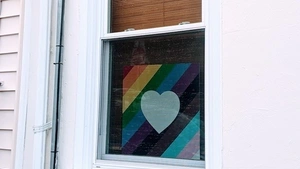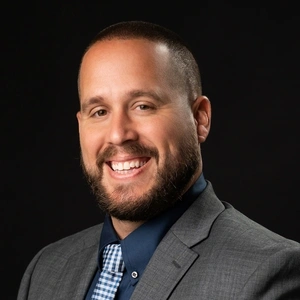Faculty Expert
Parents want to support their kids.
But many heterosexual, cis-gendered parents aren’t sure how to be a good ally when their child comes out as queer.
Kyle Schultz, a Penn GSE lecturer and licensed clinical psychologist who specializes in working with the queer community, says the key thing is to follow your child’s lead, and be ready to do some work on your own.
Here is his advice for how to be a better parent-ally, starting long before anyone comes out.
How do you talk at home?
For a queer child, a conversation starts long before they come out to a parent. Because, like all children, they are listening, watching, and processing how their parents talk about important issues.
Queer people don’t want to be tolerated. They want to be affirmed and seen as integral. If your attitude toward the LGBTQ+ community isn’t affirming—and if your child can’t see that affirmation—children are likely to assume you would be less supportive of them.
From an early age, use inclusive language around your child. Introduce your kids to books and shows that feature queer characters. Talk about the queer people who are in your family’s life, so your child can see they are real people in the real world who have real lives.
Even saying something as simple as “one day when you have a romantic partner” rather than “one day when you have a girlfriend” can make a big difference.
Framing conversations like this is important no matter what your child’s orientation winds up being.
The coming out conversation
This is a conversation about supporting your child, not processing your thoughts and feelings in the moment. Some important do’s and don’ts for parents:
Do:
Thank your child for sharing this with you. Empathize. Acknowledge that this could have been a very difficult thing to share. Even if being queer isn’t seen as a big deal in the household, it is still a big deal for your child.
Reassure your child that they are still loved. Recognize that what they have shared is an important part of their personality and identity, and that they remain the same person you have always supported.
Ask what, if any, support they’d like right now. Your child might not know. Similarly, you might have lots of questions, but your child might not know the answers, or have even thought to ask themselves. The most important thing is to let your child know that you are willing and open to talking across time.
Don't:
Ask “Are you sure?” (they are) or “Is this just a phase?” (it’s not). Schultz has worked with parents who say they are very supportive of the LGBTQ+ community, who know these aren’t helpful questions, but who still freeze in the moment and ask.
Blow it out of proportion. This new knowledge doesn’t have to fundamentally reshape your relationship with your child.
Suggest your child start counseling. Counseling is a wonderful resource for heterosexual and queer kids alike. But if your child’s coming out is the only reason you are suggesting counseling, it’s going to sound more like homework. Or a punishment.
A note for children coming out as trans or non-binary
Follow where your child is leading. Parents can sometimes jump to assuming that their child is ready to change their pronouns, name, gender expression, etc. Don't assume your child has thought through these options, much less has the answers. Often, it’s a big enough step for kids to get to a place where they can share they are even questioning their gender identity.
Those big questions will be important at some point, if they are important to your child. This conversation doesn’t have to be when you sort through those things. Let them know that you would like this to be an open, ongoing conversation where they feel they can come to you to talk.
Do your homework
If you are a heterosexual, cis-gendered person, ask yourself how much you really know about queer culture. Not how much you think you know, but how much you really know.
There are great resources to help parents after their child comes out. Start reading. Watch LGBTQ+ media. Visit queer spaces. Talk to queer people.
For parents:
For kids:
Human Rights Campaign: Coming Out
For Kids in the Philadelphia area:
Research the community centers and other resources in your area designed specifically for queer youth. Their virtual counterparts can be great too.
What’s next
First, keep talking. And listening.
Those follow-up conversations are better times to ask questions, when age appropriate, like: Are you thinking about dating? Are you meeting other people in the queer community? Do you have questions I can help you answer?
If your child is also out at school, this is the time to make sure they are receiving the support they need. We know physical or verbal harassment are an issue for queer kids. Ask if they are experiencing any of that. Related, pay attention to any changes in their behavior or mood. It might be just growing up, but it might be a new problem.
Be careful not to out your child. They might not be ready for their uncle, or their teacher, to know. Don’t accidently push your child to come out more. Again, follow your child’s lead here and err on the side of not oversharing.
And if you live in a community without many openly queer people, think about when you could take your child to visit a nearby city that has LGBTQ+ youth groups or queer events they could attend.

Subscribe to the Educator's Playbook
Get the latest release of the Educator's Playbook delivered straight to your inbox.
Media Inquiries
Penn GSE Communications is here to help reporters connect with the education experts they need.

